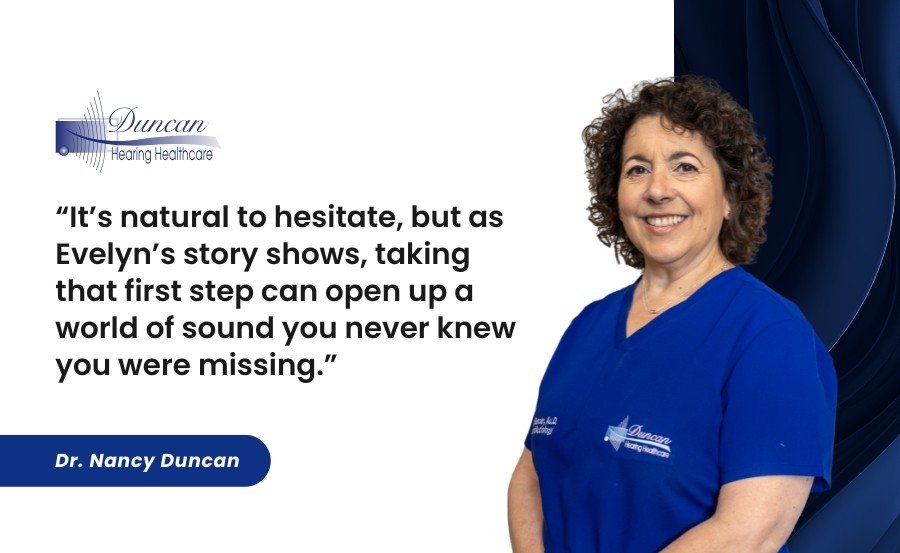Apr 19, 2021
|
Nancy Duncan, Au.D.
The First Signs Of Hearing Loss You Need To Be Aware Of
Hearing loss can present itself in many different ways, and it’s a lot more common than you realize – it starts so subtly.
Most people don’t think they have a problem until it’s a lot bigger than they originally thought.
People around them — friends, family, co-workers, etc. — notice it first.
It can sneak up on patients, but with the right treatment and early detection, these problems can be minimized.
Why Does Hearing Loss Go Untreated?
Sense of denial is the number one cause; they don’t realize the severity of the issue. It’s human nature when some things are not right.
We tend to make excuses and say, “It’s not us, it’s them” or “They’re mumbling.”
People initially don’t know about it and put it aside.
No one wants to admit that they’re getting older. They put it off until it gets really bad or their family starts to express concern or even starts complaining.
There’s usually something that triggers them to make that first step. Usually, it’s something that puts them at risk or embarrasses them.
We often compare it to when your clothes are shrinking. You blame it on the tumble drier and don’t accept that you’re putting on weight.
It’s a sort of trajectory. It’s not one reason, but it’s a lot of things put together.
First Signs Of Hearing Loss In Yourself
People first notice it in challenging environments, for example, in a noisy restaurant. You start mishearing initially, and it really only happens when a lot of background noise is present. It doesn’t happen one-on-one.
It seems to transition into “Well, they were facing away from me.” But then it starts to creep into day-to-day conversations, and you can get confused about the conversation.
If you have ever misheard a question but tried to answer it anyway only to be met with perplexed looks because your answer made very little sense, then that’s a first sign of hearing loss.

First Signs Of Hearing Loss In A Loved One
Conversely, you’re having to repeat yourself and get frustrated because the person is blaming you for saying “What?” or “Speak up.”
You start to notice that conversations become more challenging. Often people stop having conversations and only stick to the important details.
By the time patients get to me, I can sense the tension this has on their relationship.
One of the things I always do is ask for the patient’s thoughts on their hearing loss, and then I’ll ask their loved one what they think.
You can see it on their face; they let it all out. The patient sometimes looks shocked because they had no idea that their hearing loss was having such a negative impact on the relationship.
Communication is a two-way street. It’s very frustrating for the loved one because they tend to be subject to all the aggravating parts of hearing loss.
That person has no idea the kind of adjustments the patient has been making for what could be years.
Prevention
The first step is to schedule a hearing assessment. You don’t know what you don’t know. It might be something that needs treating, whether it’s wax in the ear or any other medical auditory problem. Other times it might be a rehabilitative approach where we use something like hearing aids. We don’t know what you’re up against, and you don’t know what you’re up against.
We have to find a solution to improve your life through better communication.
That’s our goal.









